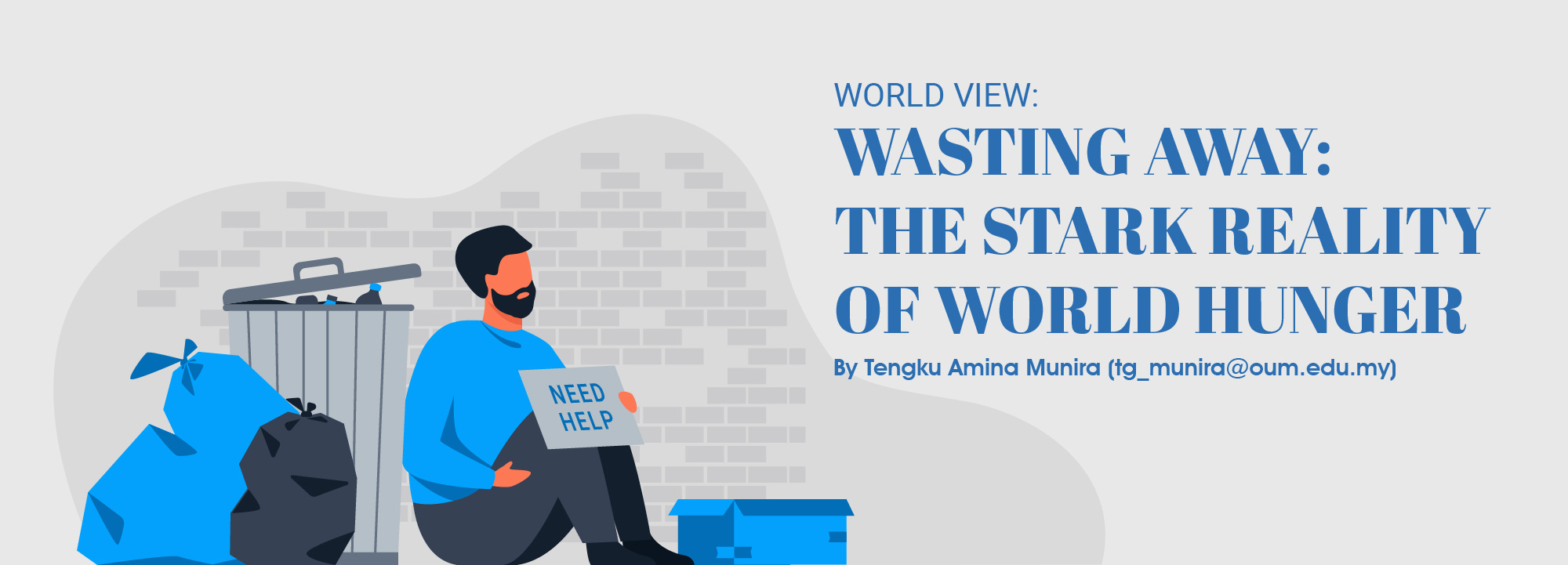
Imagine going to bed hungry every night, scavenging for food in someone else’s trash, or surviving on a packet of instant noodles split between several meals.
Millions of people are starving, even more so now due to pandemic-related fallout. According to the World Health Organization, up to 811 million people were undernourished in 2020, almost 123 million more than in 2019.
The sombre statistics don’t end there. Undernourishment is affecting one in every five Africans while globally, over 149 million children under the age of five are estimated to be stunted for their age, and another 45 million are too thin for their height.
According to Bachelor of Psychology programme director Dr Wong Huey Siew, going hungry is a serious deprivation of a physiological need, especially in children.
"Lack of food affects physical, cognitive, emotional, and psychomotor development. As a result, children cannot concentrate on learning, and suffer from behavioural problems, low energy and poor memory,” Dr Wong says.
Believe it or not, hunger isn’t caused by a lack of food. Overall, the world produces enough food to feed everyone, but those who go hungry either do not have the land to grow food or the money to buy it. In short, the principal cause of hunger is poverty. Covid-19 is certain to aggravate matters, but let’s not disregard climate change, which has already left an ugly mark on agriculture and crop production.
So what is the world to do?
During a crisis, governments provide aid through food basket programmes or stimulus packages, though Dr Wong says this is hardly comprehensive. As a result, there are people who fall through the cracks. It is in such a situation that regular people have gotten involved.
“In Malaysia, one example is the #WhiteFlag movement, a social initiative by civilians to mitigate the suffering of our friends and neighbours,” he explains. “It reflects how this pandemic has aroused the spirit of a caring society. It also shows that social mobilisation and informal collective action are crucial to prompt immediate response."
However heart-warming they are, grassroots-based initiatives cannot be a long-term solution.
Dr Wong agrees: “Aid programmes need to be better managed and deployed. Local authorities within districts or villages need to ensure aid packages reach the right beneficiaries. They could also look into setting up kitchens to provide cooked food for the poverty-stricken in each local community.
“One innovative idea is a food security protection policy, almost like an insurance policy for the B40 group and hardcore poor, similar to the current practice of making monthly SOCSO contributions to provide funds for the ones who are really in need."
We must also all play our part individually. If we have food in our pantry, let’s be grateful for our good fortune. If we have the chance to help someone in need, let’s not hesitate. This is not the time for anyone to be selfish.
For many of us, a big part of Covid-19 is about statistics. How many cases and new clusters are reported today? What are the latest infectivity, fatality and recovery rates? How many people have been vaccinated so far?
There’s nothing easy about writing books but for Dr Umi Kalthum Ngah, writing has been a lifelong dream, respite, and distraction from stress. This author of 14 books and counting is certainly an inspiration through and through.
Imagine going to bed hungry every night, scavenging for food in someone else’s trash, or surviving on a packet of instant noodles split between several meals.
Dr Ng Poh Yoke, 49, worked with young children in a kindergarten for 16 years. Last year, she made a big leap in her career by joining a private university
The Greek philosopher Heraclitus said, “Change is the only constant in life”.